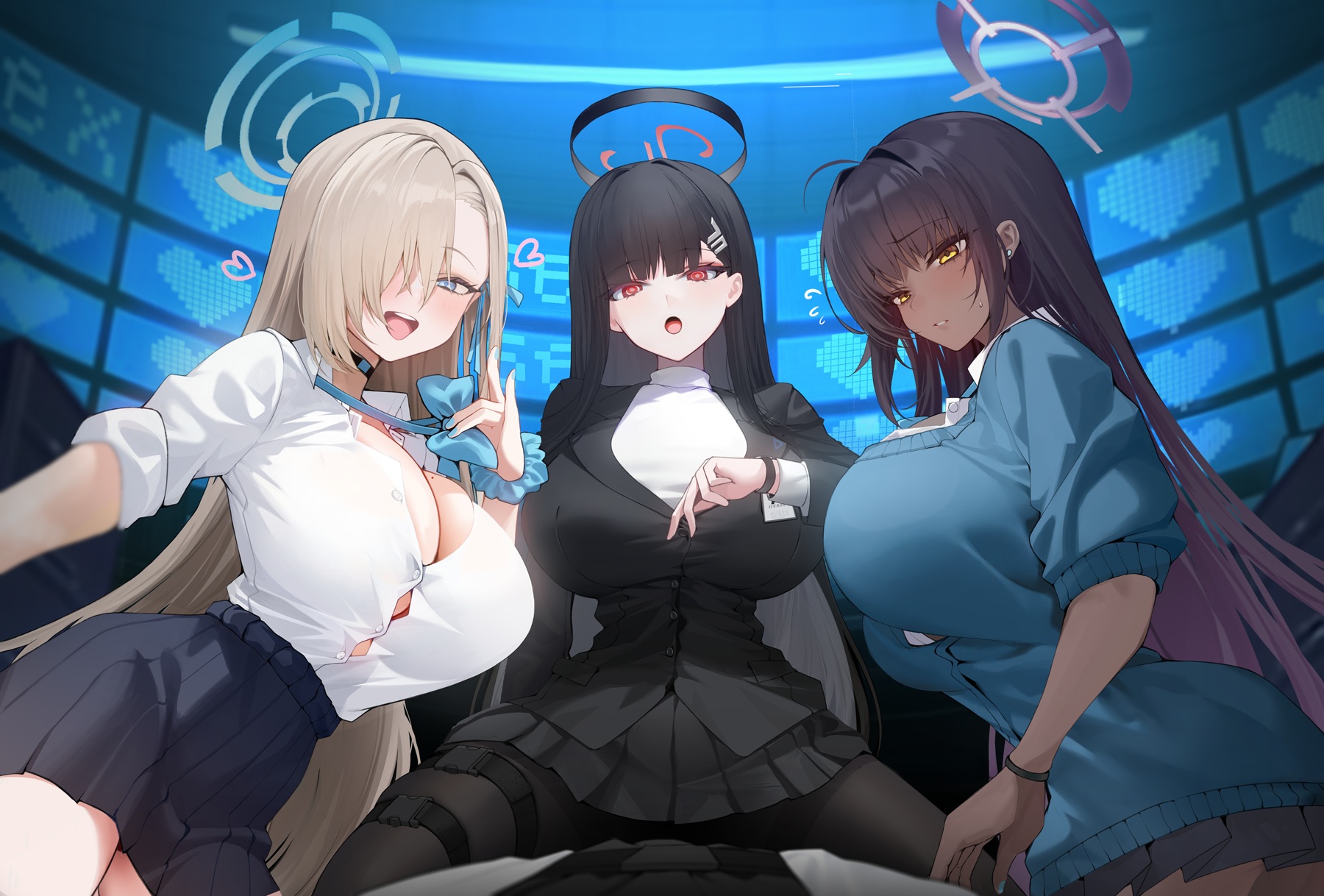
Some of the reused scenes in this anime.
This review of Gigantic Formula should be the last for this year. So, I want to take this opportunity to wish all readers of this blog Merry Christmas and Happy New Year. Gigantic Formula is a 2007 anime, so this is just the latest challenger of Nodame Cantabile for the Anime of the Year 2007 title.
Story:-
Sometime in the future, humans has excavated the heads of the ancient Greek gods from locations around the world. Not knowing what to do with the heads, one of the Gods become angry and calls upon a terrible natural phenomenon called the Equatorial Winter, which easily halves the population of the humans. Under threat by another Equatorial Winter, humanity was forced to build giant mechas (or idols) with the excavated heads as their power source and then fought each other for world domination.
This anime features yet another of those near-bloodless wars you can see in other titles like Dual! or Yamamoto Yoko, only that those two anime mentioned did not call their wars with corny names like ‘Wisest World War’. This anime is also heavily influenced by a variety of other mecha anime titles (and non-mecha alike) such as Gundam, Evangelion etc. I want to call this a coincidence, but there are so many similarities to dismiss. For example, the two-pilot configuration taken from Zegapain, the negative conformity factor taken from Dual!, the conformity factor and the age of the main male protagonist himself (14-years old) is similar to what you can find in a certain very famous mecha anime and many more.
A central object in the anime is the resonance sympathy system, used by the main protagonists as an intelligence-collecting tool in the idol war. The writers of this anime use this resonance sympathy system for two main things. First, it helps at character introductions and development and secondly it was used to advance the not-so-stellar story forward, especially in the first two-thirds of the series. The results are mixed; the resonance sympathy system was immense for character developments but it affects the flow of the storyline negatively. This happens because this plot device was overused (the resonance sympathy system was used to explore almost all of the other nation’s idol pilots and their fights) without any consideration of using other techniques of storytelling.
The ending is drawn way too long for my liking, with many dialogues and not enough action. And the dialogues can be contradictory at times. For example, when the America’s pilot says that humans is strong enough and do not need useless Gods, and the main protagonist countered it saying that Gods has hearts too. Meanwhile in the last episode, the main male protagonist was then caught repeating the America’s pilot talking points. This is one of the most stupid turnaround I have ever seen in a anime, proof that the writers do not check their plots.

One of the hilarious attempts at speaking English by the Japanese voice actors/actresses. Really have to be seen (or heard) to be believed.
Character Design:-
The character design of this anime is average; even Macross Plus has better character designs. No complaint for hair color, for all it’s worth, Equatorial Winter may have changed people’s hair for all I care. Mecha design is excellent, better than the ones in Macross Plus. This is definitely a positive point for this anime.
Voice Acting:-
Unfortunately, just like Macross Plus, the voice acting in this anime is just plain average, like the story itself. There are no outstanding characters either in this villain-less shounen mecha anime. And I think I better keep my mouth shut about those Japanese voice actors/actresses’ pathetic attempts of speaking English/Russians/German etc.
Music:-
This anime totally failed at this section. The OST is almost non-existent, which is fatal for an action-oriented title like this and the OP/ED themes are underwhelming at best.

The not-so-seamless integration of CGI and 2D animations
Animation/Direction:-
For a 2007 anime, this anime has average animation quality. There is a lot of stuttering especially in character animations and some fast-paced scenes. CGI and 2D animation are not seamless enough unlike Dragonaut the resonance, but fortunately there are not many of those here. Choreography for battles is distinctly unimpressive; with the pilots’ over-reliance with their idols armaments (those idols probably may have stripped cognitive thinking right after they entered the cockpits – those people cannot think tactics and strategies). The same can also be said about the directing, especially with the resonance sympathy system’s usage as a primary plot device.
Conclusion:-
6 out of 10. Basically, just an ordinary mecha anime that has been swatted by Noda Megumi into the ever growing heap of failed 2007 anime titles that tried to challenge the hegemony of Nodame Cantabile. Macross 7 will be delayed as I decided to watch another series before returning to the Macross franchise.

I have been rewinding two or three times, just to confirm whether the character really say the dialogue above in English.






















